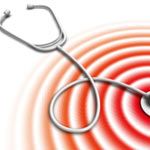
In the Northern Territory, schools have identified up to 90% of their Indigenous students can suffer partial or inconsistent deafness due to untreated middle ear infections.
Indigenous youth are already disadvantaged with learning difficulties including language, speech and literacy. Schools in NT and WA are installing amplification systems to classrooms so teachers are heard clearly.
If ear infections are left untreated, conductive hearing loss (CHL) may develop and can progress to total deafness. The sooner ear infections are treated the better the outcomes for children.
These are some warning signs that a child may have an ear infection:
- Do they have a runny nose or sore ears?
- Are they unhappy, irritable or grumpy?
- Do they have a high temperature?
Warning signs of hearing loss:
- Failure to react to loud noises, music or your voice
- Delayed speech or language development difficulties
- Poor school performance
- Behaviour problems
- Easily distracted
To maintain healthy ears:
- See your local AMS so they can show you the recommended ways to clean ears
- Have regular FREE hearing screen tests through Australian Hearing. Ask at your local AMS or call 131 797 to be connected to your local Australian Hearing centre. Australian Hearing Centres provide free hearing services for children up to 21-years-old
- Do respond quickly if you notice any of the above warning signs in your children
- Don’t let the kids swim in polluted swimming holes
- Isolate and treat sick kids when they are infected with colds or other illnesses so that infections aren’t spread around the family or community.
Babies and children who have good hearing will be happier, learn more, enjoy school better and have more positive long term educational, social, physical and employment outcomes!
For more information go to: http://www.healthinfonet.ecu.edu.au or call Australian Hearing on 131 797.
Comments are closed.